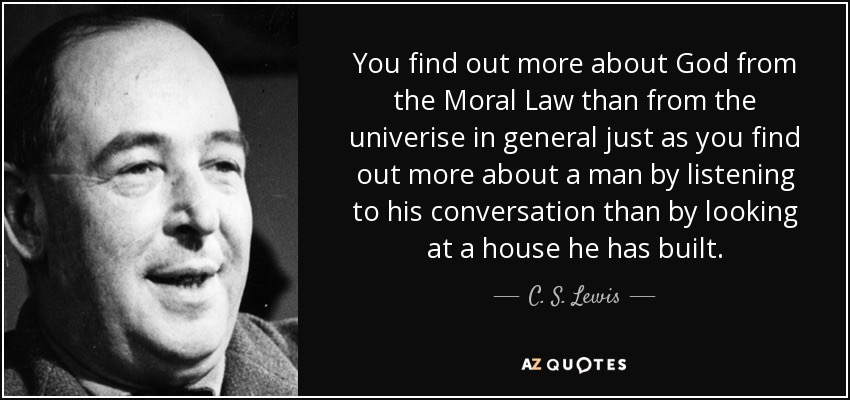🧭 Which Morality Is Right? Is There an Absolute Law? Who Should Govern?
A Christian Response to Life’s Foundational Questions
🪧 Introduction: The Big Questions That Shape a Life—and a Nation
At the root of nearly every social debate, political argument, and personal crisis lies a handful of timeless questions:
- Which moral code is right?
- Is there such a thing as absolute truth or moral law?
- Who has the right to govern, and what makes a leader legitimate?
From courtrooms to classrooms, coffee shops to Congress, these questions stir the pot. And if we don’t answer them wisely, the results are confusion, conflict, and collapse.
The Christian faith doesn’t duck these questions. Instead, it offers clear, compelling, and time-tested answers—rooted not in emotion or trends but in the eternal truth of God’s Word.
Let’s take a deep dive into each question and unpack how the Bible, the life of Jesus, and the teachings of Christian leaders offer guidance that’s as relevant now as it’s ever been.
📜 Which Morality Is Right?
✝️ Morality Begins with God’s Character
In the Christian worldview, morality is not something we construct—it’s something we discover. God is the source of morality, not culture or consensus.
“Be holy, for I am holy.” — 1 Peter 1:16
“The LORD is righteous in all His ways and faithful in all He does.” — Psalm 145:17
God is not only loving—He is just, holy, and true. And since we are made in His image (Genesis 1:27), we are designed to reflect His nature through moral living.
The moral laws found in Scripture—such as the Ten Commandments and Jesus’ teachings in the Sermon on the Mount—are expressions of God’s own heart.
🔄 Relativism vs. Revelation
In today’s culture, many believe that morality is relative. What’s right for one person might not be right for another. But if there’s no higher standard than personal preference, then might makes right and truth becomes whatever the majority says it is.
“Everyone did what was right in his own eyes.” — Judges 21:25
This verse describes a time of chaos in Israel—when God’s law was ignored, and each person became their own moral compass. The result? Moral decay, injustice, and national collapse.
By contrast, the Bible calls for a revealed morality—truth that comes from outside of ourselves.
“Your word is a lamp to my feet and a light to my path.” — Psalm 119:105
🧭 A Universal Sense of Right and Wrong
Even those who reject the Bible often agree on certain moral principles: murder is wrong, justice is good, and honesty matters. Where does this consensus come from?
“The work of the law is written on their hearts, while their conscience also bears witness.” — Romans 2:15
Theologians call this natural law—a basic moral awareness placed in every human heart by God. While sin can distort and dull our conscience, we are still moral creatures, designed to live by a standard greater than ourselves.
📖 Is There an Absolute Law?
📐 The Moral Law: Absolute, Not Arbitrary
Christianity holds that God’s law is absolute, eternal, and just. It’s not a fluctuating set of rules that adapts with society’s whims—it’s the expression of God’s unchanging nature.
“The law of the LORD is perfect, reviving the soul.” — Psalm 19:7
God’s commands—do not steal, do not lie, love your neighbor, honor your parents—aren’t just good advice. They are universal truths that apply to all people in all places.
When we treat law as a human invention, we end up with legal systems that change every few years. But God’s law provides stability, justice, and clarity in a morally foggy world.
🧠 Natural Law and Conscience
C.S. Lewis famously argued in Mere Christianity that every culture has some version of moral law, and that this points to a divine lawgiver:
“You find out more about God from the moral law than from the universe in general. The moral law is inside information.” — C.S. Lewis
Even children intuitively know it’s wrong to cheat or steal. That inner voice—what we call conscience—is part of God’s design.
Yet, conscience alone is not enough. It must be shaped and sharpened by Scripture, because sin can distort what we think is right.
🔨 Law and Gospel: Judgment and Grace
One of the Bible’s most powerful truths is that the law condemns us, but the Gospel saves us.
“Through the law we become conscious of our sin.” — Romans 3:20
“Christ is the end of the law so that there may be righteousness for everyone who believes.” — Romans 10:4
The law shows us the perfect standard, and the Gospel gives us the power to pursue it—not to earn salvation, but as evidence of God’s transforming grace.
Jesus didn’t cancel the moral law—He fulfilled it, perfectly. He is the embodiment of righteousness, and by His Spirit, believers are empowered to live lives of holiness.
👑 Who Should Govern?
🏛️ Earthly Government: A Divine Institution
The Bible makes it clear: human government is part of God’s design to maintain order, uphold justice, and restrain evil.
“Let every person be subject to the governing authorities. For there is no authority except from God.” — Romans 13:1
Government is not inherently corrupt or secular. In fact, rulers are called “God’s servants” in Romans 13:4. When functioning correctly, they reward good behavior and punish wrongdoing.
That’s why Christians are instructed to pay taxes, obey the law, and pray for those in leadership (1 Peter 2:13–17; 1 Timothy 2:1–3).
🚨 When Government Goes Wrong
However, earthly authorities are not ultimate. When the state demands something that contradicts God’s commands, believers must choose civil disobedience in allegiance to God.
“We must obey God rather than men.” — Acts 5:29
Examples include:
- Daniel praying in defiance of a royal decree.
- The apostles preaching Christ after being told to stop.
- The Hebrew midwives refusing Pharaoh’s order to kill newborn boys.
In all cases, these men and women disobeyed man’s law to obey God’s higher law—and Scripture praises them for it.
👑 The Ultimate Authority: Christ the King
At the end of the day, all human governments are temporary. Jesus Christ is the true and eternal King, and His Kingdom is not of this world (John 18:36).
“The government shall be upon His shoulders… Of the increase of His government and of peace there will be no end.” — Isaiah 9:6–7
This doesn’t mean Christians retreat from politics or public life. Instead, we engage with integrity, compassion, and a Kingdom-first mindset.
Our goal isn’t to build a theocracy, but to be ambassadors of heaven who reflect Christ’s reign in how we live, vote, lead, and serve.
🌍 Illustrations and Real-World Examples
🎨 Compass and Map
Imagine being lost in the wilderness. A compass gives you direction, and a map shows you where you’re going. Without either, you’re wandering aimlessly.
God’s law is the compass; His Word is the map. They don’t just point out where you are—they help you get where you’re supposed to be.
⚖️ Bonhoeffer: Faithful Resistance
Dietrich Bonhoeffer, a German pastor, resisted Hitler’s regime because the Nazi laws contradicted God’s commands. He was imprisoned and ultimately executed, not because he hated government, but because he loved God’s law more than man’s decree.
🕯️ Martin Luther King Jr.: A Higher Law
In his Letter from Birmingham Jail, Dr. King wrote:
“A just law is a man-made code that squares with the moral law or the law of God. An unjust law is a code that is out of harmony with the moral law.”
His activism was rooted in biblical theology—not political power. He believed that God’s law was higher than the law of the land, and that every believer had a duty to seek justice based on divine truth.
📌 Summary Table
| Question | Christian Answer | Key Scripture |
|---|---|---|
| Which morality is right? | God’s morality, rooted in His nature | Micah 6:8, Matthew 22:37–40 |
| Is there an absolute law? | Yes—revealed in nature and Scripture | Romans 2:15, Psalm 19:7 |
| Who should govern? | Earthly rulers under God; Christ reigns supreme | Romans 13:1, Isaiah 9:6, Acts 5:29 |
🙏 How Then Should We Live?
- Study Scripture Regularly – Let God’s Word shape your view of right and wrong.
- Form Your Conscience Biblically – Don’t just follow your heart; form it with the truth.
- Engage Society Boldly – Christians belong in politics, schools, courts, and neighborhoods as salt and light (Matthew 5:13–16).
- Submit When You Can, Resist When You Must – Respect authority, but never compromise God’s truth.
- Proclaim Christ as King – Not just in private faith, but as the public Lord of all creation.
“Seek first the Kingdom of God and His righteousness, and all these things will be added to you.” — Matthew 6:33
📚 References
- The Bible – NIV, ESV
- C.S. Lewis, Mere Christianity
- Francis Schaeffer, How Should We Then Live?
- John Stott, Issues Facing Christians Today
- Martin Luther King Jr., Letter from Birmingham Jail
- Dietrich Bonhoeffer, Letters and Papers from Prison
🌄 Final Reflection
When it comes to morality, law, and leadership, the world is loud and confused. But the Christian has a quiet confidence—anchored not in changing times, but in the unchanging character of God.
There is a right and wrong. There is an absolute standard. And there is a sovereign King.
His name is Jesus. And under His rule, we find not just truth—but freedom, peace, and eternal purpose.
“Your Kingdom come. Your will be done, on earth as it is in heaven.” — Matthew 6:10
📝 Published by Mountain Veteran Ministries
💬 Leave a comment below or share this blog if it stirred your heart.
📧 Subscribe to our newsletter for more gospel-rooted insights.

